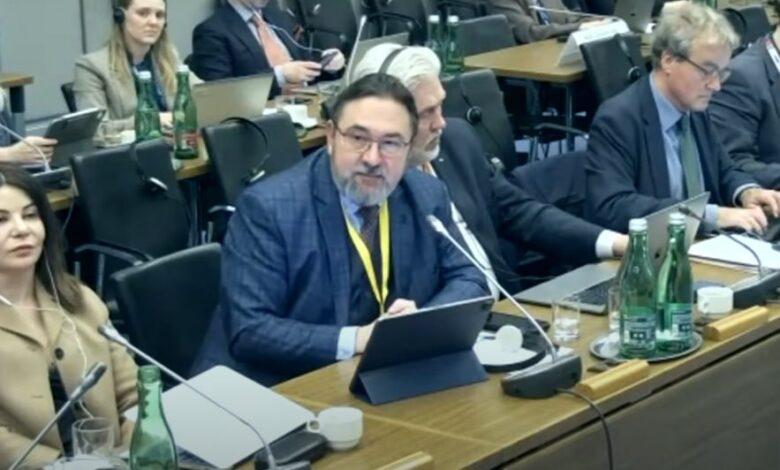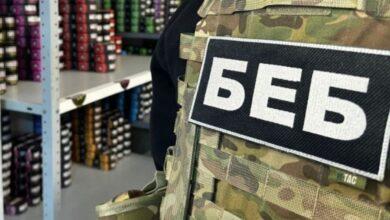“51% of independent Ukrainian media may cease their activities this year”: Mykyta Poturaev

The modern world is increasingly faced with challenges when information becomes a weapon no less important than missiles or tanks. Conflicts and humanitarian crises create extremely difficult conditions for the work of the media — and not only on the battlefield, but also behind the scenes, in the newsrooms, where the question always arises: how to tell the truth and at the same time stand up? Today, Ukraine is again in the center of attention of the international community, as a country that is simultaneously fighting for its freedom and for the right to convey the truth to the world.
The first additional meeting was held in Vienna meeting OSCE in the human dimension, which was dedicated to the role of the media in the conditions of conflicts and humanitarian crises. This platform gathered diplomats, journalists, experts and human rights defenders from many countries. Ukraine was strongly represented – among the delegates were diplomats of the Permanent Mission to the OSCE, people’s deputies, representatives of media regulators, journalists and public figures.
Among the topics that caused particular concern and discussion were the prospects of Ukrainian media against the background of reduced international support. People’s Deputy of Ukraine and Vice-President of the OSCE Parliamentary Assembly Mykyta Poturaev directly stated about the critical risks facing domestic independent media. He reminded that the USA has already stopped funding a number of programs, including for Ukrainian journalists.
“51% of independent Ukrainian media may stop their activities already this year. And among them, from 51% to 70% are regional media, that is, we can lose almost all regional media in Ukraine. Why? Because the US is cutting funding. Sorry, but it is. And you know who does not cut funding? Russia. And, of course, China.” Poturaev said.
The deputy called for the creation of an international fund to support independent media on a long-term basis:
“We need long-term financial mechanisms, not short-term grants. Propaganda does not stop. And the truth should not stop either.”
The First Deputy Chairman of the National Council of Ukraine for Television and Radio Broadcasting Valentyn Koval also shared his concern. He drew attention to the global change in the very model of information consumption. Today, the media no longer live in the system of “one to all”, but in the reality of “all to all”, where everyone can become a source of news – regardless of professionalism or responsibility.
“Our discussion today is very important, although a little late. Of course, as long as there are brands like the BBC or Dagens Nyheter, Brits and Swedes have the ability to verify the truth of the information. But when in a similar situation 77% of Ukrainians turn to the Russian Telegram platform, it causes concern and creates serious risks for public awareness and security.” Koval emphasized.
Separately, he raised an important topic for the future — the use of artificial intelligence in the media. According to Koval, society is not yet ready to realize the scale of the challenges posed by AI content.
“We already see how deeply fake videos, news, photos are created. And the labeling of content created by artificial intelligence should become a mandatory standard. Europe is already moving in this direction. We cannot stand aside.” he emphasized.
A special part of the meeting was the screening of the documentary film “He Came Back”, created by the editors of The Kyiv Independent. This is a strong and difficult film about sexual crimes committed by the Russian military in the occupied territories of Ukraine. The film became not just a document, but a proof, another testimony of war crimes that must be punished.
Another powerful moment was the speech of Ukrainian human rights defender, journalist and former prisoner of war Maksym Butkevich. He spent two years in Russian captivity and told the truth about torture, repression, and abuse by the Russian Federation. His testimony became a painful but very important reminder to the world about who Ukraine is dealing with on this front.
All these speeches and discussions once again confirmed that the war is not only on the battlefield. The information front is no less fierce, and it cannot be lost. That is why the support of the Ukrainian media today is not just a matter of the survival of individual newsrooms. This is a matter of preserving the truth. This is a matter of preserving freedom.
“Truth is what we are fighting for today. If we lose it, we will not win the war. Therefore, supporting independent media is not humanitarian aid, it is an investment in our common security.” – the meeting ended with this message.
Ukraine urged the world not to stand aside. And everyone who was there heard that voice.





